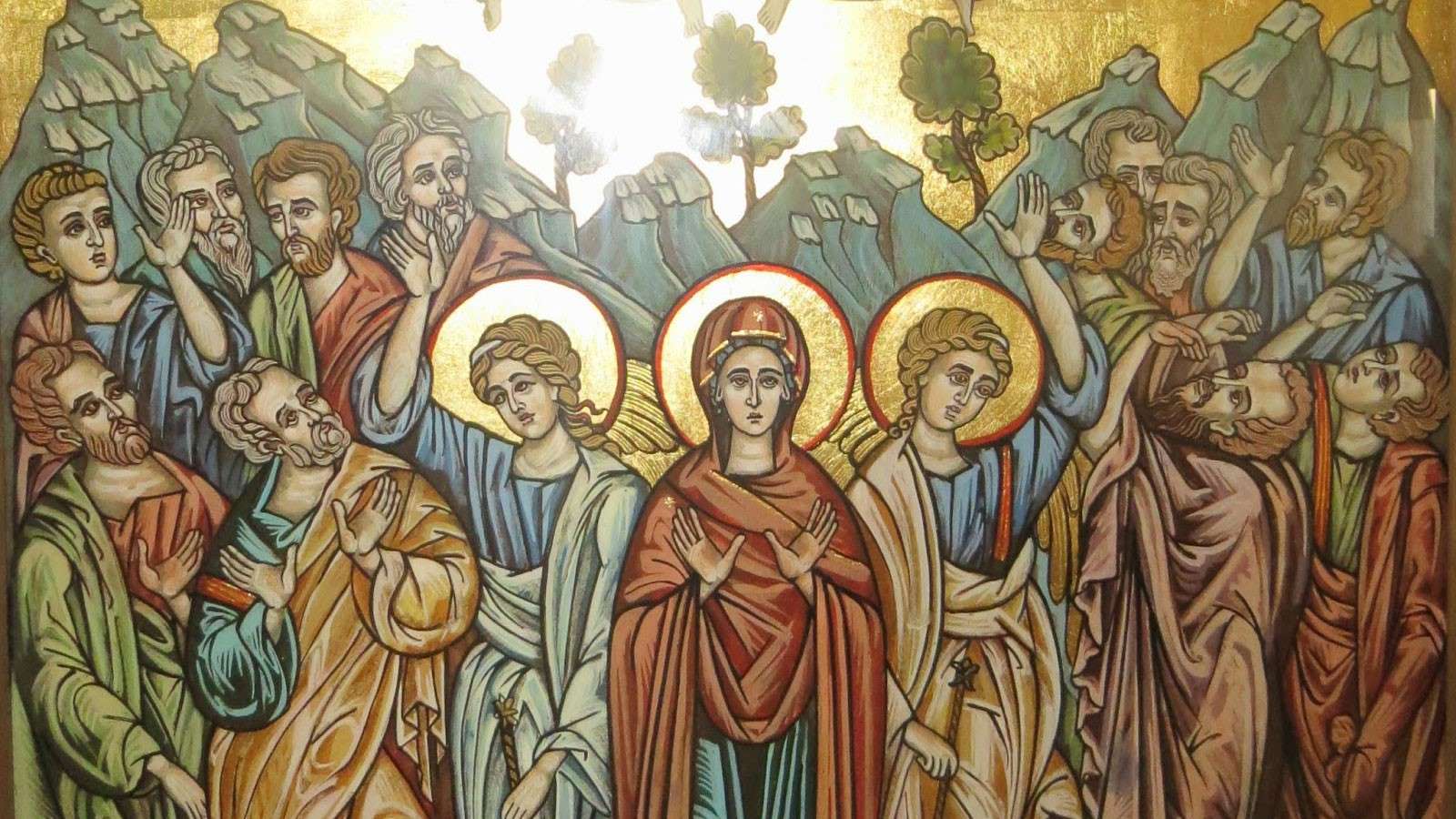
The Ascension of Jesus is a pivotal event in Christian theology, marking the moment when Jesus was taken up to heaven 40 days after his resurrection. This event is celebrated by Christians worldwide and holds deep spiritual significance. But what exactly happened during the Ascension? Why is it so important? In this blog post, we'll explore 30 fascinating facts about the Ascension of Jesus, shedding light on its historical, theological, and cultural impact. From biblical accounts to artistic representations, these facts will give you a comprehensive understanding of this monumental event. Ready to learn more? Let's dive in!
The Ascension of Jesus: An Overview
The Ascension of Jesus is a significant event in Christian theology. It marks the moment when Jesus was taken up to heaven after his resurrection. This event is celebrated by many Christian denominations and holds deep spiritual meaning.
Historical Context
Understanding the historical context of the Ascension can provide deeper insights into its significance.
-
The Ascension occurred 40 days after Jesus' resurrection. This period allowed Jesus to appear to his disciples and others, proving he had risen from the dead.
-
The event is described in the New Testament, specifically in the books of Luke and Acts. These accounts provide detailed descriptions of Jesus' final moments on Earth.
-
The Ascension took place on the Mount of Olives. This location holds historical and religious significance, being a site of many important biblical events.
Theological Significance
The Ascension is not just a historical event; it carries profound theological implications.
-
It signifies Jesus' return to God the Father. This act completes the cycle of Jesus' life, death, resurrection, and ascension.
-
The Ascension marks the beginning of Jesus' heavenly reign. Christians believe Jesus now sits at the right hand of God, ruling over heaven and earth.
-
It paves the way for the Holy Spirit's arrival. Jesus promised his disciples that the Holy Spirit would come to guide and empower them after his departure.
Symbolism and Imagery
The Ascension is rich with symbolism and imagery that enhances its meaning.
-
Jesus' rising into the clouds symbolizes his divine nature. Clouds often represent the presence of God in biblical literature.
-
The act of ascending signifies Jesus' exaltation. It shows his victory over death and his elevation to a position of honor and authority.
-
The disciples' reaction to the Ascension highlights their faith. They worshiped Jesus and returned to Jerusalem with great joy, showing their belief in his divine mission.
Celebrations and Traditions
The Ascension is celebrated in various ways across different Christian traditions.
-
Ascension Day is observed 40 days after Easter. It is a major feast day in the Christian liturgical calendar.
-
Many churches hold special services and processions. These events often include readings from the New Testament accounts of the Ascension.
-
Some cultures have unique customs associated with Ascension Day. For example, in some European countries, people climb hills or mountains to commemorate Jesus' ascent.
Artistic Representations
The Ascension has inspired countless works of art throughout history.
-
Early Christian art often depicted the Ascension in frescoes and mosaics. These artworks aimed to educate and inspire the faithful.
-
Renaissance artists like Raphael and Titian created famous paintings of the Ascension. Their works are celebrated for their beauty and theological depth.
-
Modern artists continue to explore the theme of the Ascension. Contemporary interpretations can be found in various media, including sculpture and digital art.
Impact on Christian Doctrine
The Ascension has had a lasting impact on Christian beliefs and practices.
-
It reinforces the belief in Jesus' divinity. The Ascension is seen as proof of Jesus' divine nature and his unique role in salvation history.
-
The event emphasizes the hope of eternal life. Christians believe that just as Jesus ascended to heaven, they too will be raised to eternal life.
-
The Ascension encourages Christians to live with a sense of mission. Jesus' final instructions to his disciples were to spread his teachings to all nations.
The Ascension in Different Denominations
Different Christian denominations have unique perspectives on the Ascension.
-
The Roman Catholic Church views the Ascension as a key event in salvation history. It is celebrated with a solemn Mass and often includes a procession.
-
Eastern Orthodox Christians emphasize the mystical aspects of the Ascension. Their liturgies focus on the spiritual significance of Jesus' return to heaven.
-
Protestant denominations often highlight the Ascension's role in empowering believers. They stress the importance of the Holy Spirit's arrival and the mission to evangelize.
The Ascension in Scripture
The biblical accounts of the Ascension provide valuable insights into its meaning.
-
Luke 24:50-53 describes Jesus blessing his disciples before ascending. This passage emphasizes the joy and worship that followed the event.
-
Acts 1:9-11 offers a detailed account of the Ascension. It includes the appearance of two angels who reassure the disciples of Jesus' return.
-
Mark 16:19 briefly mentions the Ascension. This verse highlights Jesus' exaltation and his position at God's right hand.
The Ascension and Eschatology
The Ascension has important implications for Christian eschatology, or the study of the end times.
-
It foreshadows Jesus' second coming. Christians believe that just as Jesus ascended to heaven, he will return in glory at the end of time.
-
The Ascension emphasizes the already-but-not-yet nature of God's kingdom. While Jesus reigns in heaven, the fullness of God's kingdom is still to come.
-
It encourages believers to live with an eternal perspective. The Ascension reminds Christians to focus on heavenly things and live in anticipation of Jesus' return.
The Ascension and Christian Life
The Ascension has practical implications for how Christians live their faith.
-
It inspires a sense of hope and purpose. Believers are encouraged to live with the assurance of Jesus' victory and the promise of eternal life.
-
The Ascension calls Christians to witness and service. Jesus' final instructions to his disciples were to be his witnesses to the ends of the earth.
-
It fosters a sense of unity and community. The Ascension reminds Christians that they are part of a global family, united in their faith and mission.
The Ascension's Lasting Impact
The Ascension of Jesus isn't just a historical event; it holds deep theological significance. It marks the moment Jesus returned to heaven, symbolizing the completion of his earthly mission. This event reassures believers of Jesus' divine nature and his promise to return. It also emphasizes the importance of faith and the Holy Spirit's role in guiding Christians. The Ascension encourages believers to live out their faith, knowing Jesus intercedes for them in heaven. This event has inspired countless works of art, literature, and music, reflecting its profound impact on Christian culture. Understanding the Ascension helps deepen one's faith and appreciation for the Christian journey. It serves as a reminder of hope, purpose, and the promise of eternal life. The Ascension continues to be a cornerstone of Christian belief, inspiring and guiding believers worldwide.
Was this page helpful?
Our commitment to delivering trustworthy and engaging content is at the heart of what we do. Each fact on our site is contributed by real users like you, bringing a wealth of diverse insights and information. To ensure the highest standards of accuracy and reliability, our dedicated editors meticulously review each submission. This process guarantees that the facts we share are not only fascinating but also credible. Trust in our commitment to quality and authenticity as you explore and learn with us.


